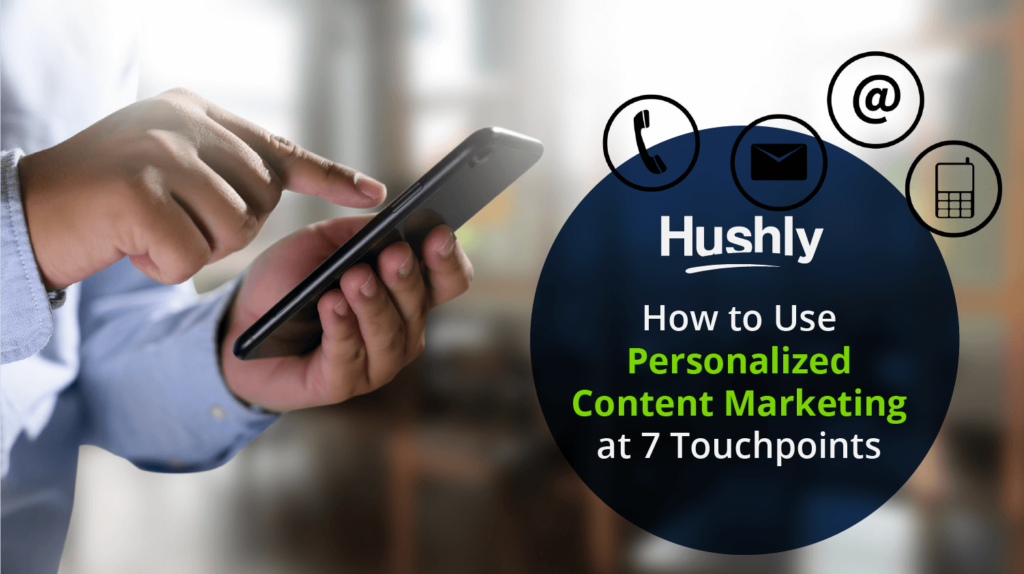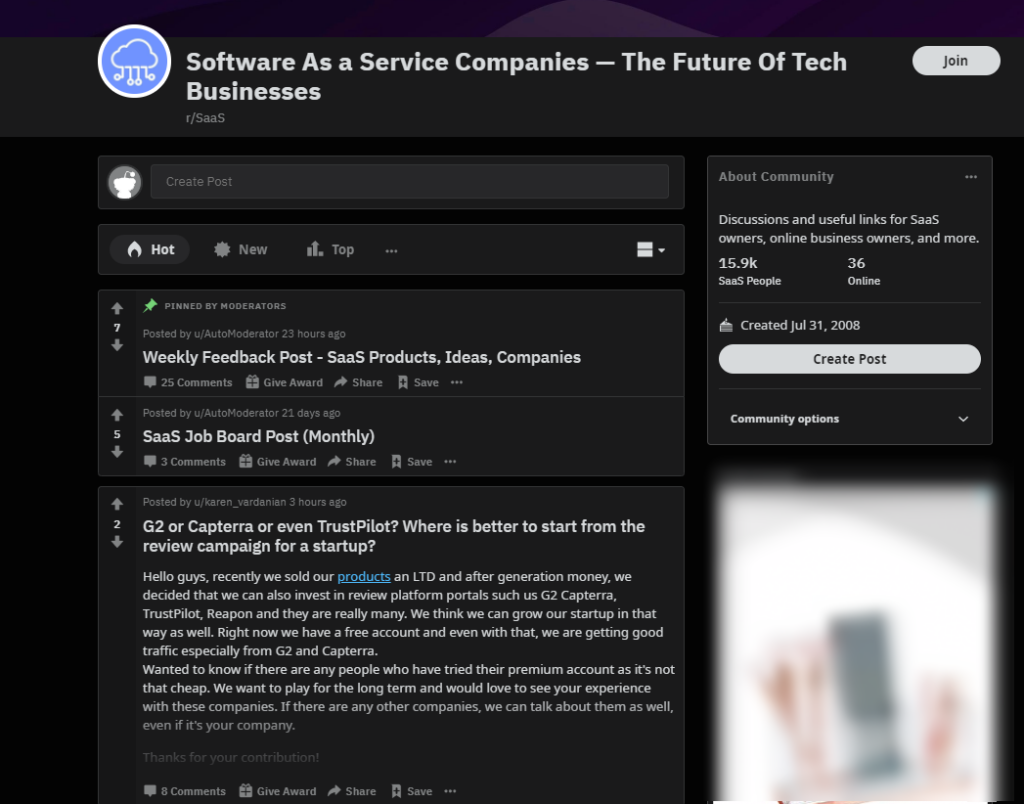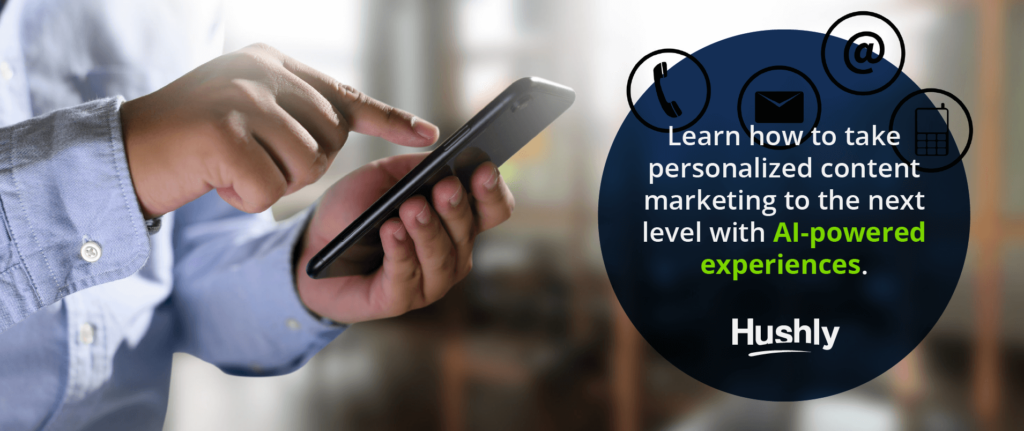Regardless of their feelings on data collection, most consumers and business buyers all expect a personalized experience from brands today.
In fact, 83% of consumers said they’re willing to trade some of their data privacy in exchange for a more relevant experience – so long as transparency is priority number one.
Unfortunately, Gartner predicts that 80% of B2B marketers will abandon their data-driven personalization by 2025.
Businesses must solve the bad data problem before they ever invest in content or try to personalize the experience.
How can you understand where buyers might interact with your brand if you aren’t collecting accurate data on your audience?
The good news is that you can make some educated guesses about where your buyers might hang out online and personalize your content marketing to meet them where they’re at.

7 Touchpoints Along the Buyer’s Journey to Personalize Your Content Marketing
Not every attempt to personalize your content marketing needs to be data-driven with a hyper-granular element. You can still personalize the experience with some basic information about where your buyers hang out and what kind of content would help them at each touchpoint.
1. LinkedIn Retargeting with Personalized Content Marketing
You can easily personalize LinkedIn ads with relevant content from your website even if you don’t know much else about your leads.
This is why you need to start with niche comprehensive content. Once someone views a specific case study, blog, or eBook, you can build a decent understanding of their firmographics, pain points, and stage of the funnel.
Just plug one of those URLs with targeted content into the LinkedIn retargeting ad tool and build a relevant post with the next piece of content to nudge them down the funnel – maybe a comparison or whitepaper.
Make sure to keep the content helpful and not promotional or salesy. Your goal is to empower buyers with information.
2. Targeted Facebook Ads with Personalized Content
Facebook is another useful place for sharing highly targeted advertisements. Who says you need to use your own page though?
Build relationships with relevant influencers and pages within your niche. Partner with them to run retargeting ads or relevant ads to segments of their audience.
These types of partnerships are a go-to strategy for smart consumer companies, and there’s no reason B2Bs shouldn’t reap their benefits, too. Just look for influencers or partner pages with audiences that overlap your existing customer base.
3. Industry-Relevant Subreddits
Reddit is tricky because users and mods can smell promotion from a mile away. Always follow the rules of the subs you intend to post or comment and don’t use any sales tactics – nope, none.
Instead, focus on being helpful. Answer questions in comment sections. Point to relevant solutions and product comparisons when people ask.
The SaaS subreddit, for example, is fairly active and discusses some interesting topics:

With Reddit, you also get the added benefit of increased honesty from the anonymity – both for yourself and other users.
4. Funnel-Based PPC Ads
PPC ads can drain a serious hole in your budget if you’re not careful. Make sure to choose small groups of relevant keywords along different stages of the sales funnel.
At each stage, offer a relevant piece of content like an eBook, whitepaper, or case study – rather than a convert-now CTA.
No one likes to feel bullied into buying anything. You’re much more likely to deliver better results from your PPC campaigns personalized with content marketing for empowerment at each stage of the journey than just demanding visitors close a sale.
5. Site-Wide Web Content Personalization
With artificial intelligence and machine learning, you don’t need massive data sets to personalize your website content for each visitor. Instead, just start with personalized content for each account, segment, stage, pain point, vertical, or firmographic.
AI will analyze the visitor’s behavior on your website and offer personalized content recommendations like relevant blogs, eBooks, case studies, and more.
Leads can self-nurture without ever filling out a lead magnet form. That’s why B2Bs who use AI to personalize their content marketing enjoy 51% more lead conversions and 59% better lead quality. It’s incredible what you can accomplish when you make the user experience better instead of more challenging.
6. Relevant Review Websites
There’s a reason the latest post in the SaaS subreddit asked about the best review websites. Reviews are an important part of the sales process for both consumers and business buyers.
Each review website has its own unique audience, requirements, and expectations.
Make sure your brand shows up in all the top places like Trust Pilot, G2, Capterra. Set up a free account and ask your customers to leave a review. Let them know you value their business and you could use their help to spread the word.
Even a few in-depth reviews from happy customers are better than absolutely nothing.
7. Strategic Guest Blogging with Personalized Content Marketing
Guest blogging gets a bad reputation, but that’s because most marketers don’t take it as seriously as they should.
Hold yourself to the same integrity and standard as you would with your own website’s content. It’s easy to tell when someone’s just writing generic content for the exposure to a wide audience.
Don’t contribute to the noise. Pick a relevant nuanced topic based on the current environment in your industry and write a comprehensive thought leadership piece to flex your muscles and explain your position.
Remember, your name is attached to guest blogging content forever, so don’t take it lightly – assume your piece will rank at the top of the results for your keyword.
Streamline Personalized Content Marketing Across Your Website
Nailing down each touchpoint along the buyer’s journey is a massive challenge but personalizing your website’s content experience doesn’t have to be.
Artificial intelligence makes it easy to offer a Netflix-style experience to your B2B buyers. Algorithms study their behavior, compare each visitor to prior visitors, integrate intent data, and gently guide leads down the sales funnel.
You can focus more on producing excellent content and less on ensuring everyone finds the most relevant content for their current needs.
Learn how to take personalized content marketing to the next level with AI-powered experiences.

